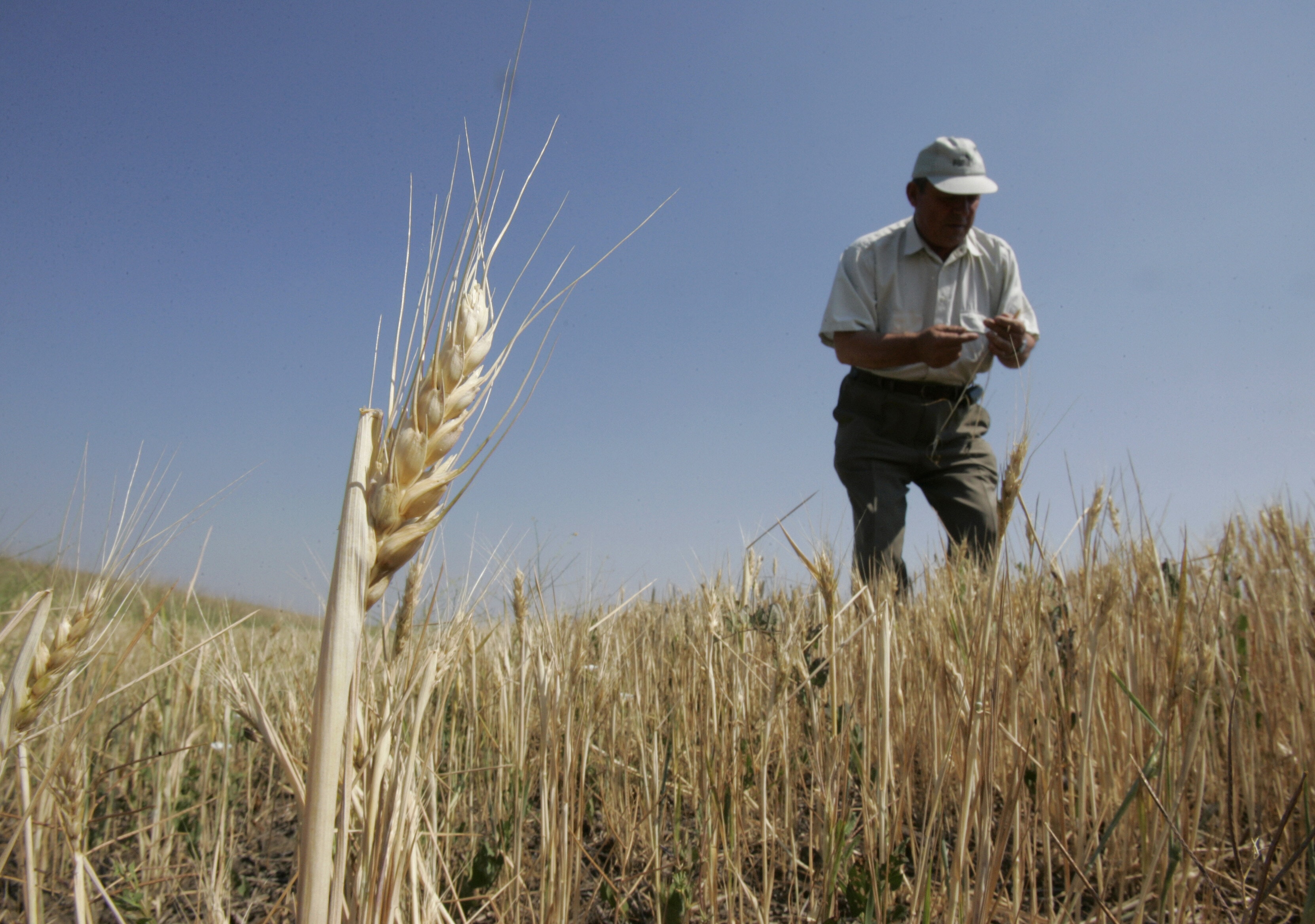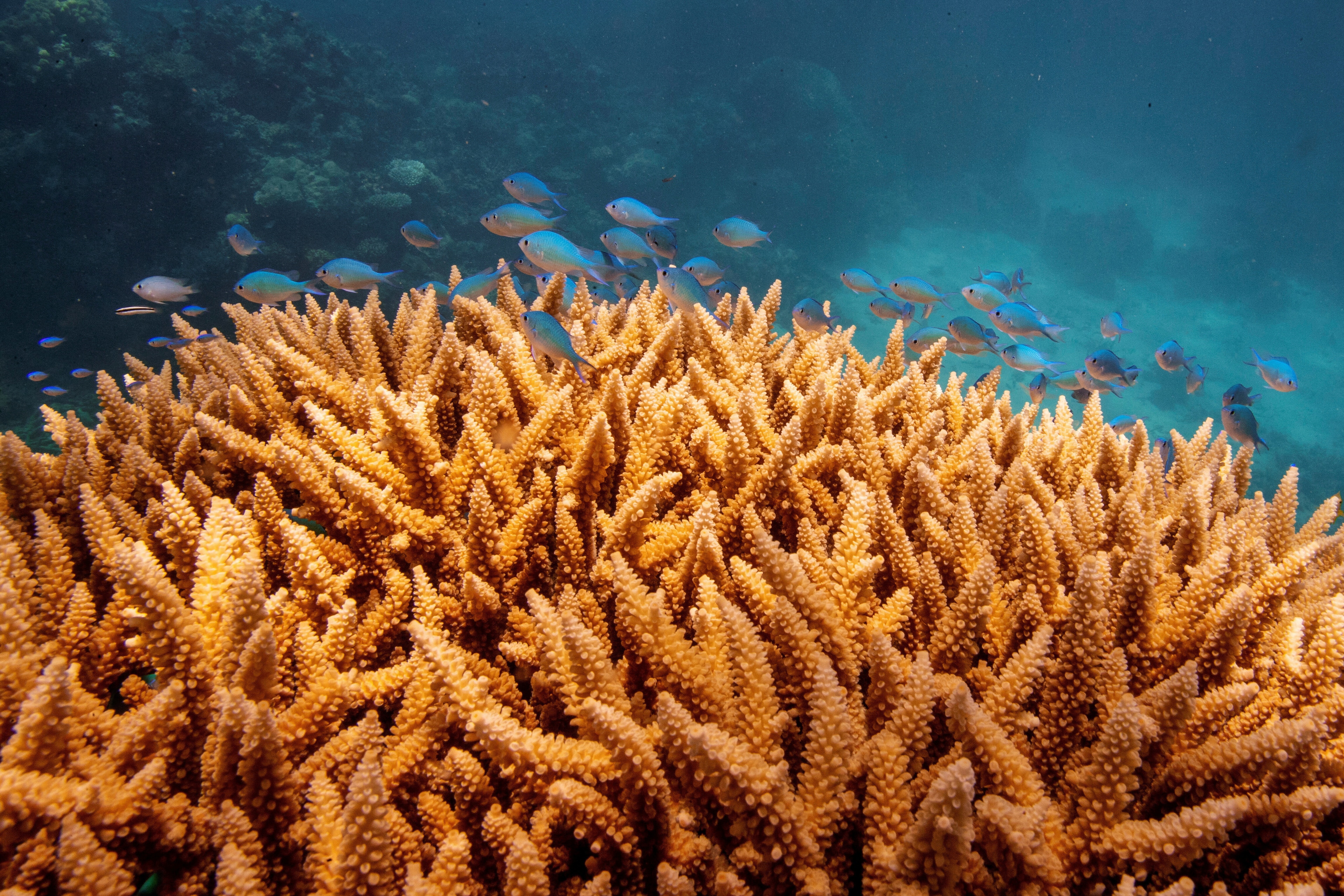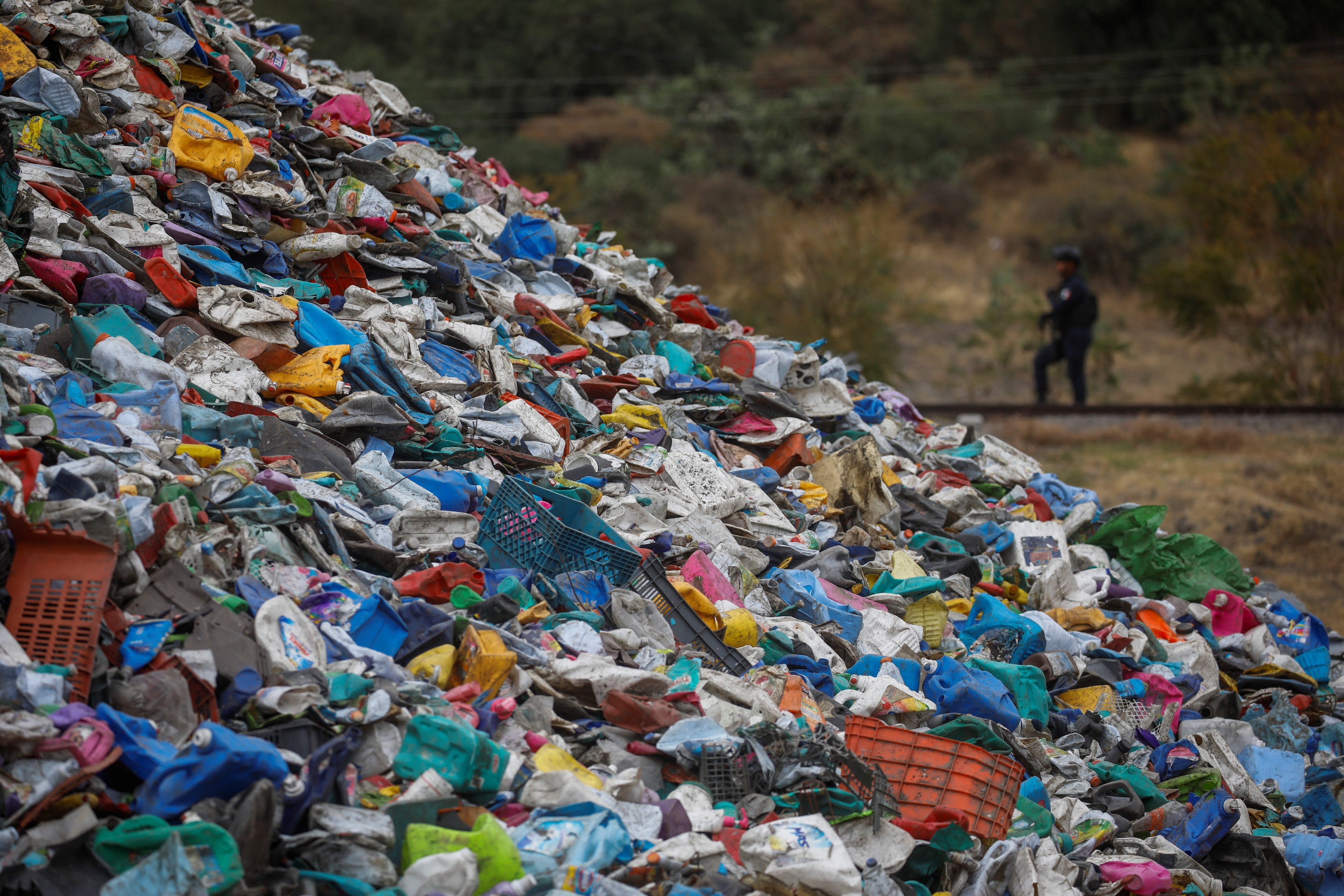Climate change exposes young generations to life-long health harm

A child wears a surgical mask due to elevated levels of pollution during smog in Mexico City.
Image: REUTERS/Carlos Jasso
Stay up to date:
SDG 13: Climate Action
- A global study has found children are particularly vulnerable to the health risks of a changing climate because their bodies are still developing
- If limited action is taken, the study found children would be vulnerable to malnutrition and rising food prices
- Scientists called for urgent action to reduce outdoor and indoor pollution through the introduction of cleaner fuels and vehicles
Children are particularly vulnerable to the health risks of a changing climate, as their bodies and immune systems are still developing, says co-author of global study.
A child born today faces multiple and life-long health harms from climate change - growing up in a warmer world with risks of food shortages, infectious diseases, floods and extreme heat, a major global study has found.
Climate change is already harming people's health by increasing the number of extreme weather events and exacerbating air pollution, according to the study published in The Lancet medical journal. And if nothing is done to mitigate it, its impacts could burden an entire generation with disease and illness throughout their lives.
"Children are particularly vulnerable to the health risks of a changing climate. Their bodies and immune systems are still developing, leaving them more susceptible to disease and environmental pollutants," said Nick Watts, who co-led The Lancet Countdown on Health and Climate Change study.
He warned that health damage in early childhood is "persistent and pervasive", and carries lifelong consequences.
"Without immediate action from all countries to cut greenhouse gas emissions, gains in wellbeing and life expectancy will be compromised, and climate change will come to define the health of an entire generation," he told a London briefing.
Yet introducing policies to limit emissions and cap global warming would see a different outcome, the research teams said.
In that scenario, a child born today, would see an end to coal use in Britain, for example, by their 6th birthday, and the world reaching net-zero emissions by the time they were 31.

Vulnerable
The Lancet study is a collaboration by 120 experts from 35 institutions including the World Health Organisation, the World Bank, University College London and China's Tsinghua University.
On a "business-as-usual" pathway, with little action to limit climate change, it found that amid rising temperatures and extreme weather events, children would be vulnerable to malnutrition and rising food prices, and the most likely to suffer from warmer waters and climates accelerating the spread of infectious diseases such as dengue fever and cholera.
Among the most immediate and long-lasting health threats from climate change is air pollution, the researchers said.
They called for urgent action to reduce outdoor and indoor pollution through the introduction of cleaner fuels and vehicles, and policies to encourage safe and active transport such as walking and cycling.
The WHO says that globally in 2016, 7 million deaths were due to the effects of household and ambient air pollution. The vast majority of these were in low and middle-income countries.
"If we want to protect our children, we need to make sure the air they breathe isn't toxic," said Sonja Ayeb-Karlsson, a global health specialist at Britain's Sussex University who worked on the Lancet study.
Don't miss any update on this topic
Create a free account and access your personalized content collection with our latest publications and analyses.
License and Republishing
World Economic Forum articles may be republished in accordance with the Creative Commons Attribution-NonCommercial-NoDerivatives 4.0 International Public License, and in accordance with our Terms of Use.
The views expressed in this article are those of the author alone and not the World Economic Forum.
Related topics:
Forum Stories newsletter
Bringing you weekly curated insights and analysis on the global issues that matter.
More on Nature and BiodiversitySee all
Tom Crowfoot
August 14, 2025
James Balzer
August 14, 2025
Tom Crowfoot
August 12, 2025
Pedro Gomez and Clemence Schmid
August 6, 2025
Tom Crowfoot
August 5, 2025





